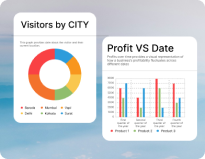Strategies for Efficiently Scaling Up Your E-commerce Business
Understanding the Foundations
Before embarking on a rapid expansion journey, it is crucial to comprehend the foundational elements that support your e-commerce business. Assess your product lines, customer demographics, market positioning, and unique value propositions. Scrutinize your operational efficiency, supply chain, and customer service. By gaining a comprehensive understanding of these elements, you can lay a solid groundwork for future growth initiatives.
Streamlining Operations for Enhanced Scalability

Operational efficiency serves as the backbone of your business’s ability to handle increased demands. Integrate robust e-commerce management systems and software that automate processes, streamline inventory management, and ensure seamless order fulfillment. Implement scalable technology infrastructure to accommodate a growing customer base without compromising on website performance and user experience.
Leveraging Data-Driven Insights
Harness the power of data to fuel informed decision-making and strategic planning. Utilize advanced analytics tools to track customer behavior, identify emerging market trends, and understand shifting consumer preferences. By leveraging data-driven insights, you can personalize customer experiences, optimize marketing strategies, and refine your product offerings to align with evolving market demands.
Cultivating a Strong Brand Identity
Amidst rapid growth, maintaining a strong and consistent brand identity is pivotal. Craft a compelling brand story that resonates with your target audience and reflects your business’s core values. Invest in professional branding initiatives, including visually appealing website designs, engaging content creation, and cohesive marketing campaigns, to establish a recognizable and trustworthy brand presence in the competitive e-commerce landscape.
Building a Robust Customer Support Infrastructure

Exceptional customer service remains a cornerstone of sustainable growth and customer retention. Develop a responsive and multi-channel customer support system that promptly addresses inquiries, concerns, and feedback. Foster meaningful interactions with your customers to build lasting relationships and cultivate brand loyalty, ultimately fostering positive word-of-mouth and repeat business.
Implementing Agile and Adaptive Strategies
In an ever-evolving digital marketplace, agility is key to staying ahead of the competition. Embrace adaptive strategies that allow for quick adjustments to market fluctuations, consumer behavior shifts, and emerging industry trends. Remain open to experimenting with new marketing channels, product variations, and innovative business models to capitalize on untapped opportunities and maintain a competitive edge.
Conclusion
Scaling up an e-commerce business demands a strategic and holistic approach that prioritizes operational efficiency, data-driven decision-making, brand consistency, and customer-centricity. By adopting these proven strategies, you can navigate the challenges of growth and expansion while fostering a sustainable and thriving e-commerce enterprise in the competitive digital landscape.
Frequently Ask Questions?(FAQs)
What role does SEO play in scaling up an e-commerce business?
SEO is crucial for improving online visibility. Optimize your website with relevant keywords, high-quality content, and backlinks. This not only attracts organic traffic but also enhances your website’s authority in search engine rankings.
How can I determine the right market niche for my e-commerce business?
Understanding your market niche involves thorough research. Identify customer needs, analyze competitors, and look for gaps in the market. Tailor your products or services to address those specific needs.
Why is user-centric design important for e-commerce success?
User-centric design ensures a positive customer experience. An easy-to-navigate website reduces bounce rates and encourages users to stay longer, increasing the likelihood of conversions
How can I leverage social media for my e-commerce business?
Social media platforms offer a vast audience. Create engaging content, interact with your audience, and run targeted ad campaigns. Social media presence builds brand awareness and drives traffic to your e-commerce site.
What are the key benefits of affiliate marketing in e-commerce?
Affiliate marketing extends your reach through partnerships with influencers. It enhances credibility, drives traffic, and can lead to increased sales. Ensure partnerships align with your brand and target audience.
How do I effectively use data analytics for my e-commerce business?
Data analytics provides valuable insights. Analyze customer behavior, monitor product performance, and identify trends. Make data-driven decisions to optimize marketing strategies, inventory management, and overall business performance.














